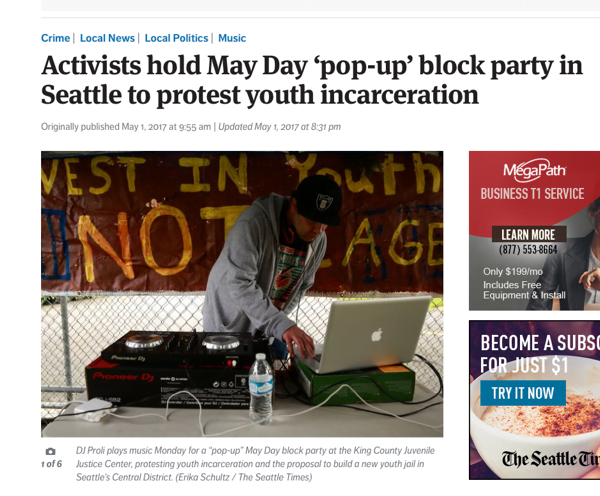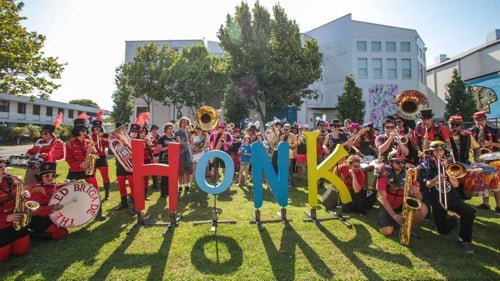If that isn’t the kettle calling the pot black, I don’t know what is. So, these rich billionaire CEO’s from corporations that have raped and pillaged working-class people by charging higher prices for everything and made mad money getting paid hundreds of millions for work they never did, are now blaming the workers who made them rich for not working at all.
Story below:
- Silicon Valley founders and investors are debating what constitutes real work in tech.
- That’s amid the biggest shedding of jobs in the industry’s history.
- Investor Keith Rabois last week said firms had over-hired engineers who do “fake work.”
If you’re not building or coding what, exactly, are you doing?
That’s the question posed by certain members of the Silicon Valley elite who are attributing layoffs to a boom-time phenomenon: over-hiring and “fake” work.
A tirade on fake work came last week from Keith Rabois, the PayPal Mafia member, technology investor, the current chief executive of e-commerce firm OpenStore.
Speaking from Miami at an event hosted by banking firm Evercore, Rabois said big tech firms had hired too many people in pursuit of the “vanity metric” of headcount. They brought on so-so, spoiled workers in order to look bigger than rivals, and to stop those workers from achieving anything useful at a competitor.

1 of 11 Photos in Gallery©Bain & Company
Job hunting in 2023? Here are Glassdoor’s 10 best places to work in the UK including Bain & Company, Google, and Salesforce
- Glassdoor released its Best Places to Work in the UK list, with Bain & Company ranking top.
- Bain & Company has consistently appeared on the top four in the US list for 15 years.
- Meta fell of the list this year, while Apple’s ranking dropped, but technology firms still dominated.
Recruitment firm Glassdoor has just released its annual list of the best companies to work for in the UK in 2023.
Glassdoor’s Best Places to Work list has been running for nine years in the UK, ranking the 50 best companies with over a 1,000 employees. The ranking is based on the outcome of its Employee’s Choice Awards through which workers voluntarily provide anonymous reviews and feedback.
Consulting firm Bain & Company topped the list with Google, Salesforce and Service Now in the top ten. Bain & Company also featured highly on Glassdoor’s US list, ranking third with tech firm Gainsight ranked first.
Some 13 industries were recognized in the UK this year including manufacturing, hospitality, finance, transportation, advertising and more. Tech companies dominated with 21 employers mentioned and six in the top ten.
Meta fell of the list despite making the top ten in 2022, while Apple fell from number 23 to 36, since last year. Microsoft remained in the top 20. Meta and Apple weren’t included in the US list entirely this year despite Apple being mentioned every year since 2009 and Meta since 2011.
Both companies were affected by the economic downturn in 2022 and implemented harsh cost-cutting measures. Meta laid off 11,000 people last year — the largest job cut in its history. Meanwhile Apple put in place a hiring freeze.
Bain & Company has maintained its spot on the US list for 15 years, consistently ranking among the top four. The company is known for paying generous six-figure salaries with junior talent making up to $250,000.
Below are the top ten companies that made Glassdoor’s list including industries the companies are a part of, employee reviews, and the five point company rating with the highest score “5.0” meaning “very satisfied.” See More
“All these people were extraneous,” Rabois said. “This has been true for a long time. The vanity metric of hiring employees was this false god in some ways.”
He charged that thousands of employees at Google and Meta were essentially kept around to do nothing.
“There’s nothing for these people to do — they’re really — it’s all fake work,” said Rabois, whose net worth was at one time estimated at $1 billion. “Now that’s being exposed, what do these people actually do, they go to meetings.”
The view has gained hold among rich investors and founders.
“They really were doing nothing working from home,” Thomas Siebel, the billionaire chief executive of artificial intelligence firm C3.ai, told Insider this week. He added: “If you want to work from home, like four days of work in your pajamas, go to work for Facebook.”
And they see mass layoffs as a chance to reset tech exceptionalism and return to the grind.
A particular view of ‘work’
This concept of fake work is rooted, at least partly, in political disagreement.
Several of the tech figures pushing these ideas lean Republican, in contrast to the left-leaning tech workers they’re lambasting.
They appear to vaunt the blue-collar work ethic, sometimes presented politically as the only “real” kind of work. They lionize weirdos who get things done, who have hard coding, science, or math capabilities but may lack soft skills. They show antipathy towards tech unions — a product, they say, of activist employees with too much spare time.
They also see marketing, design, HR, policy, ethics or other more creative roles as, basically, a waste of space.
They don’t necessarily say this stuff explicitly.
Rabois says fake work is meetings. For Elon Musk, it’s not being in the office or not making stuff. For investor Marc Andreessen, it’s whatever the “laptop class” does including, seemingly, holding socially conformist opinions. But statements like Andreessen Horowitz’s much-mocked “it’s time to build” manifesto or Musk springing 1:30 a.m. code reviews on engineers after taking ownership of Twitter are pretty indicative of where they think real worker value lies.
And they have ammo. Tech firms in the past were so desperate to stop staff from going to competitors that the perks became legendarily ridiculous.
Cue “day in the life of” TikTok videos, where 20-somethings with highly paid tech jobs showed off about getting face masks in the office and having a “self-care moment.”
Investor David Sacks — a friend of Musk’s and another of the PayPal Mafia — commented last August incredulously on one such video: “Does anyone still work?”. Musk replied with a cry-laugh emoji.
There’s also the phenomenon of rest-and-vest employees — rich workers acquired into a larger organization who do, well, nothing while waiting for their shares to vest so they can leave.
Musk has been the most outspoken and ruthless CEO when it comes to chopping workers he sees as surplus, demanding early in his Twitter takeover that workers commit to being “extremely hardcore” and prioritizing engineers over workers in areas like policy, marketing, and legal.
He and others pushing a grind culture are motivated, as tech employees commenting on the workplace app Blind noted.
“Probably some greedy VC looking to suppress wages,” said one user of Rabois, whose tag indicated they currently work at Square. “I worked at several supposedly good wlb [work-life balance] companies and everyone had tons of work to do.”
And fake work just isn’t possible at most startups, one investor told Insider.
“It’s easy to get lost in a large company, but for a startup there’s no way to get away with fake work,” said Eugene Malobrodsky, partner at early-stage investor One Way Ventures, which backed fintech Brex. “I think it’s a false narrative to say many people do fake work, especially when companies already deploy workplace monitoring tools.”
But, while they aren’t openly agreeing with Musk, Andreessen, Rabois, and Sacks, it’s clear other tech CEOs are following Musk’s example.
Meta, which laid off more than 11,000 people in November, saw roughly 70% of its layoffs hit departments such as recruiting, product, marketing, operations, design and sales, according to MetaMates Talent Directory, a tally created by Meta employees to keep track of cut jobs. Only around 22% of layoffs came from the engineering team.
The good life for tech workers is well and truly over.
Source: Millionaire and billionaire CEOs say thousands of laid-off tech staff just did ‘fake work’ (msn.com)



